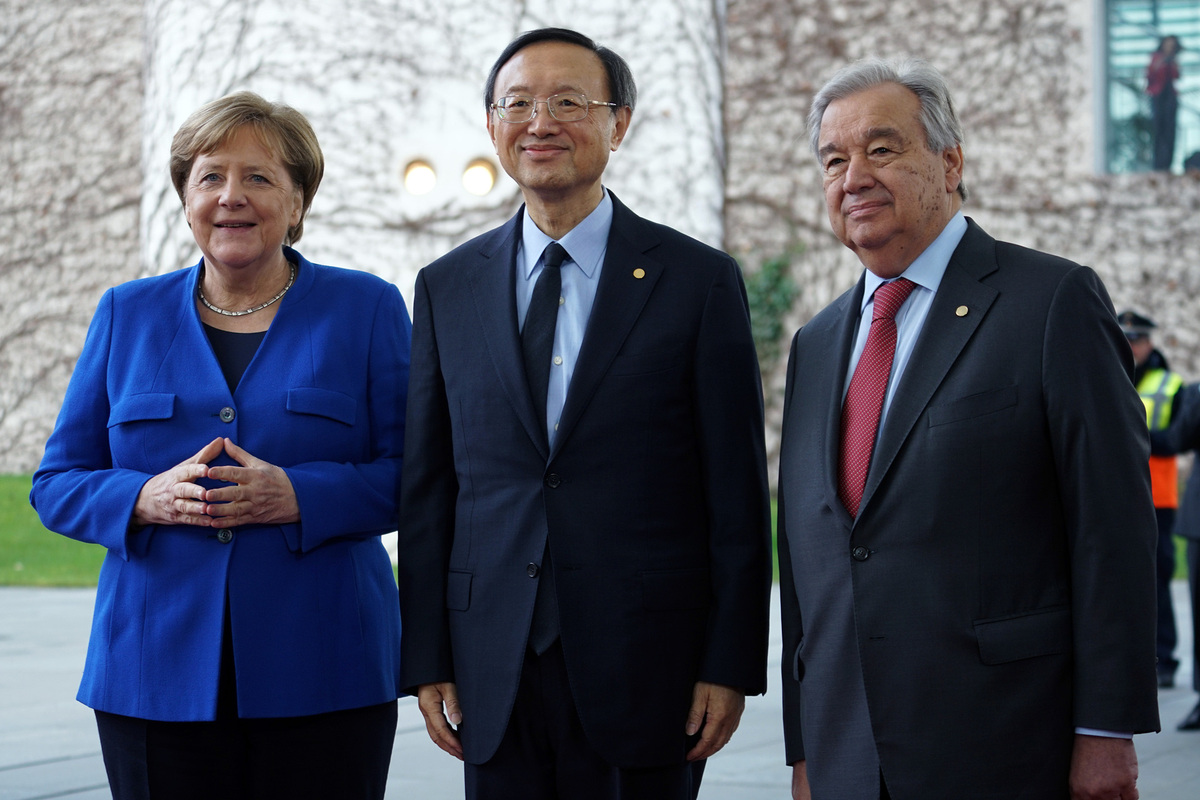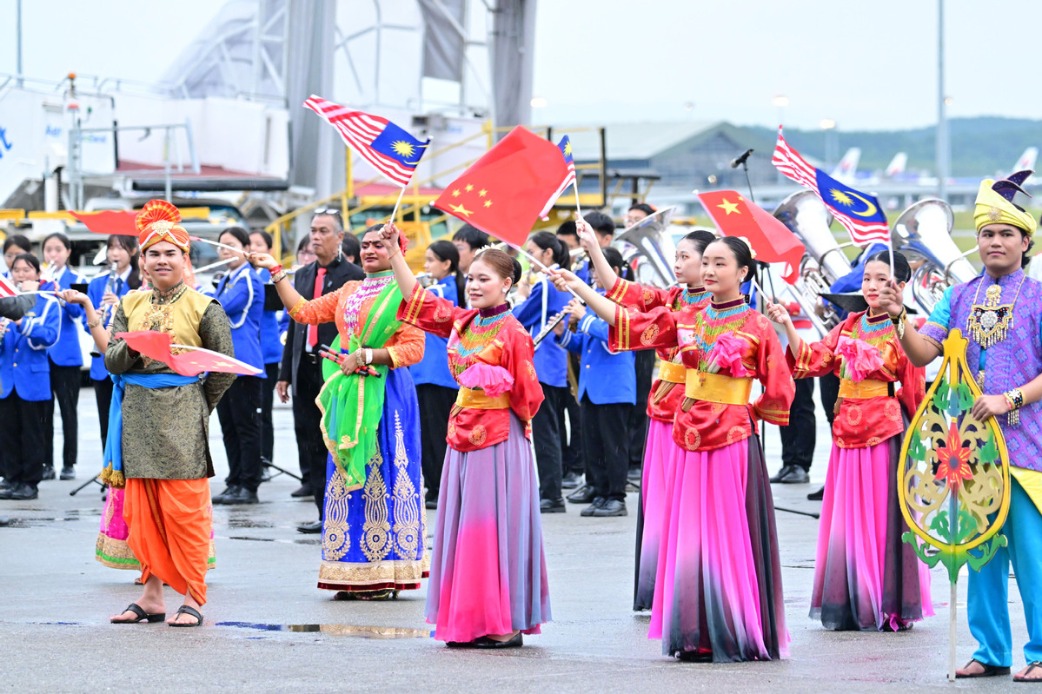Beijing envoy calls for cease-fire in Libya
China Daily | Updated: 2020-01-21 10:28

Appeal to warring parties comes as world powers commit to end meddling
BERLIN-President Xi Jinping's special envoy Yang Jiechi called on Sunday for an immediate and comprehensive cease-fire in Libya, as world leaders committed to ending all foreign meddling in the country's civil war and to uphold a weapons embargo as part of a broader plan to end the long-running civil conflict.
Yang, also a member of the Political Bureau of the Communist Party of China Central Committee and director of the Office of the Foreign Affairs Commission of the committee, made the appeal at the Berlin Conference on Libya.
Yang said that effort to address the Libyan issue should focus on the fundamental interests of the Libyan people and the future and destiny of the North African country.
All parties concerned should restart dialogue and reconciliation as soon as possible, he added.
Yang also called for resolving differences in a bid to achieve regional peace and stability. The spillover effects of the Libyan civil conflict should also be eliminated through a comprehensive approach that addresses both symptoms and root causes, he said.
China always takes an objective and fair stand on the Libyan issue, abides by the purposes and principles of the UN Charter, always respects Libya's sovereignty, independence and territorial integrity, and insists on promoting the political settlement of the Libyan issue under the UN leadership, Yang said.
China is willing to continue to work with the international community to positively contribute to restoring peace, stability and development in Libya, Yang said.
High-level representatives of Algeria, China, Egypt, France, Germany, Italy, Russia, Turkey, the Republic of the Congo, United Arab Emirates, Britain and the United States attended the conference, together with representatives of the United Nations, the African Union, the European Union, and the League of Arab States.
'Serious dialogue'
The presidents of Russia, Turkey and France were among global chiefs signing the agreement on Sunday to stop interfering in the war-be it through weapons, troops or financing.
But the talks failed to deliver "serious dialogue" between the warring parties-Khalifa Haftar, commander of the Libyan National Army, or LNA, and Fayez al-Sarraj, the head of Tripoli's United Nations-recognized Government of National Accord, or GNA-or to get both sides to sign up to a permanent truce.
Sarraj and Haftar were both in Berlin but refused to meet each other, reflecting the scale of the differences separating both sides in the conflict.
"Ensuring that a cease-fire is immediately respected is simply not easy to guarantee," said conference host German Chancellor Angela Merkel.
"But I hope that through today's conference, we have a chance the truce will hold further."
UN chief Antonio Guterres said the world powers had made "a strong commitment to stop" the conflict escalating into a regional confrontation.
Russian Foreign Minister Sergei Lavrov pointed to some positive take-aways from the talks, but confirmed that the conference failed to launch necessary talks between Sarraj and Haftar.
"It is clear that we have not yet succeeded in launching a serious and stable dialogue between them," Lavrov told reporters after the conference.
US Secretary of State Mike Pompeo acknowledged that there are "still some questions on how well and effectively" the commitments can be monitored.
But he said he is "optimistic that there will be less violence and... an opportunity to begin the conversation that (UN special envoy) Ghassan Salame has been trying to get going between the Libyan parties".
Lavrov said the Libyan parties had nevertheless taken "a small step" forward.
Libya has been torn by fighting between rival armed factions since 2011. Most recently, GNA troops have been under attack since April from the forces of the LNA.
Clashes have killed more than 280 civilians and 2,000 fighters and displaced tens of thousands in the past nine months. The Berlin conference came after inter-Libyan talks were held in Moscow on Jan 13 under the mediation of Russia and Turkey.
Xinhua - Agencies
























